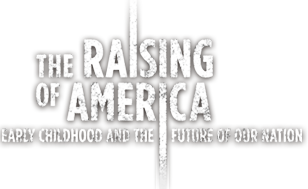Security? I Don't Really Know What That Feels Like
to watch purchased videos
Add to Your Favorites
Remove from Your Favorites
Clip Transcript
Cynthia Chang, parent:
It’s hard to try to make everything work. You feel pulled in all different directions.
Ann Waterman Roy, parent:
There’s this feeling of constantly being on attentful alert.
Yaminette Diaz-Linhart, parent:
It’s just too much, I can’t do it.
David Linhart, parent:
Feeling security—I don’t really know what that feels like.
NARRATOR: Parents and caregivers are scrambling to fulfill their responsibilities in a society that’s unresponsive to family needs.
john a. powell, Director, Haas Institute for a Fair & Inclusive Society, UC Berkeley:
We’ve made public problems into private problems, without resources. So you have to fix everything yourself.
Elizabeth Wright, parent:
Funding was cut. We had to cut two or three classrooms.
john. a. powell:
And so we have parents who are strapped for time, for money, for resources.
Milton McCabe, parent:
My position was transferred overseas. We didn’t have any income. That’s any parent’s worst nightmare.
NAR: Thirty-five years ago, wages were rising in tandem with productivity, but since then—while labor productivity continued to rise—the gains of that productivity have been shared less and less with average Americans.
Tina Bruno, parent:
He got called in last night to pick up another shift and we need the money.
NAR: Over the last 40 years, corporate profits reached record highs. Middle class wages have remained stagnant. The value of the federal minimum wage has actually fallen.
Ashley Walker, parent:
You can’t survive on minimum wage and take care of two kids. It’s just not possible.
NAR: As wages for most have stagnated, the cost of housing doubled, medical care quadrupled, and the cost of education increased eight-fold.
Marilyn, child:
Sometimes she cries and she’s stuck and she needs somebody to help her.
Rob Dugger, Co-Founder, ReadyNation:
Parents. They’re the beginning of the process. We do not invest enough in parents.


